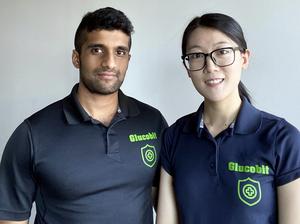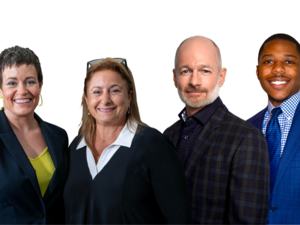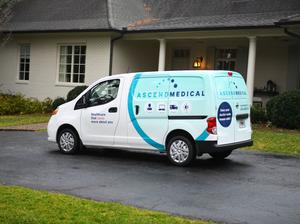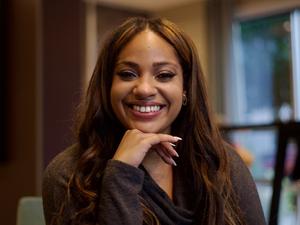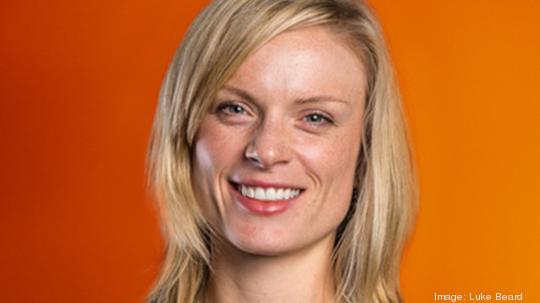
Kathryn O’Day couldn’t stay away from Atlanta.
After studying Spanish at Amherst College in Massachusetts, she returned to the city and stumbled into the technology ecosystem in 2008.
As the ninth employee at Pardot, O’Day helped grow the marketing software company, which was eventually acquired by ExactTarget and then Salesforce in 2012.
O’Day joined Rigor and spent three years as chief operations officer before moving to the founding team of Drum Technologies Inc. The infectious energy and autonomy in growing companies kept her coming back to the startup ecosystem.
Now, she’s taking a turn in the investor seat at Atlanta Ventures with the hope to help more Southeastern companies navigate the choppy waters of starting a company.
Atlanta Inno connected with O’Day over Zoom to talk about Atlanta’s growing technology ecosystem and how the past year's recession could benefit startups.
Inno: What have you learned from growing companies?
KO: Always be learning. Nobody knew how to do it until they actually did it. Even at the big companies, they’re still figuring out. I’ve also learned being who you are — both personally and as a company — is what makes you successful. Every company has a different flavor and personality. A SalesLoft shouldn’t try to be a Calendly, and vice versa. Just be who you are and play to your strengths. Authenticity throughout the process is important.
Inno: What are you most looking forward to as you make the shift from the startup team to the investing team?
KO: I’m most looking forward to paying it forward. If I can help somebody not make the same mistakes I did, I would love that. Or if I can help them learn a bit faster and have less growing pains, that’s a huge win.
Inno: Is Atlanta the “Silicon Valley of the South?” Is that a lame nickname?
KO: Yes, it is lame, because we don’t want to be Silicon Valley. We want to be Atlanta. The Atlanta startup flywheel is just getting going. We’re going to see that exponential growth. We just haven’t hit that multiplier yet, but we’re so close.
With the pandemic and remote work, people are seeing they could live anywhere, and I think more people are moving to the Southeast because the weather is amazing and the cost of living is so much better. And now we’ve got places like Atlanta Tech Village to give companies early-stage opportunities.
Inno: What’s Atlanta missing before reaching that sort of growth?
KO: Time. Startups take five to 10 years to really percolate. All the data points are tracking. We just need more time. I think support for more minority founders, which has happened in the past few years, is also an area where we can always do more.
Inno: Do you have any worries or fears for the city as it hits its stride?
KO: Right now, the community is very close knit, and people are supportive because Atlanta is still seen as somewhat of an underdog. If we become as big as I think we can, do we lose that thing that makes it really fun to be in Atlanta?
I think we’re a ways off from that, and I also think we have the special sauce of being Southern, where people are friendly and work together. We have a culture here that being nice gets you further than being a competitive or aggressive, so when that’s the status quo, I think it makes it harder to change into an ego-driven place.
Inno: How do you think the pandemic affected the startup ecosystem?
KO: Recessions are when big companies go hunting for deals, so there’s actually been a lot of activity. It’s potentially a silver lining that companies with cash are interested in making deals. There’s a lot of capital in the market that people want to deploy. It’s never been a better time to start a company.
A lot of people have done soul-searching around the work they’re doing during the pandemic, especially with the newfound freedom of remote work. People are thinking, ‘Could I be an entrepreneur?’ To those people, I would say, ‘yes.’ Throughout history — the 2008 recession and the dot-com burst — many companies started out of recessions. There’s that need for companies to add value.
Inno: I read that you do Ironman races. Wow. How do you do that?
KO: I will say, Ironmans are a lot like a startup. If you think about them in totality, it’s overwhelming and intimidating. But if you think about it day by day, you look back and see how far you’ve come. I’ve always loved seeing that progress every day doing sports in college. I channeled all of that into Ironmans, and you train with people as a team. Again, just like a startup, it makes it fun if you do it with other people.
